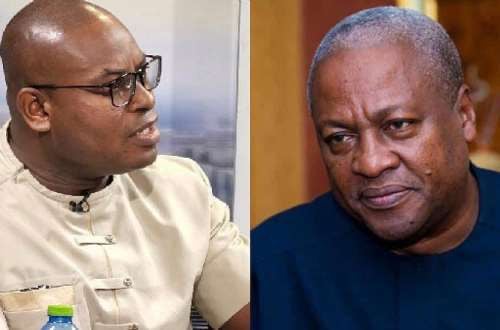The political landscape of Ghana has been stirred by allegations of drug trafficking involving private jets operating through Kotoka International Airport, igniting a debate about national security and government responsiveness. Richard Ahiagbah, National Communications Director of the opposition New Patriotic Party (NPP), has criticized the ruling government for its reactive stance on the issue, arguing that a proactive approach to security is essential to prevent such incidents rather than merely responding after they occur. He commended the NPP Minority Caucus in Parliament for raising the alarm and bringing the matter to public attention. This highlights the critical role of opposition parties in holding the government accountable and ensuring transparency in matters of national security.
At the heart of the controversy are two private jets, Air Med Flight N823AM and Cavok Air Antonov 12B, which landed at Kotoka International Airport in March 2025. The NPP Minority Caucus, led by Assin South MP Rev. John Ntim Fordjour, has demanded full disclosure from the National Security Ministry regarding the contents of these aircraft. Their concerns stem from intelligence suggesting that the planes, originating from Grand Canaria, Spain—an area identified as a hub for drug trafficking—may have been carrying illicit cargo. This raises significant questions about the efficacy of security protocols at the airport and the potential for Ghana to be exploited as a transit point for international drug trafficking.
The Minority’s press conference prompted a response from President John Dramani Mahama, who directed investigative agencies to collaborate with MP Rev. John Ntim Fordjour to ascertain the facts and provide a comprehensive briefing. The President’s statement emphasized the government’s commitment to thoroughly investigating the allegations and ensuring Ghana’s integrity in the fight against drug trafficking. However, the NPP’s criticism suggests a perceived gap between the government’s stated commitment and its actions, highlighting the need for demonstrable proactive measures to prevent such incidents.
The incident underscores the complex challenges facing Ghana in maintaining its security and reputation on the international stage. The allegations, if proven true, could have serious implications for Ghana’s image and its relationship with international partners in the fight against drug trafficking. The government’s response, including the President’s directive for an investigation, is a crucial step in addressing these concerns. However, the NPP’s call for a more proactive approach suggests that the government needs to demonstrate a greater commitment to preventing such security breaches rather than simply reacting to them after they occur.
This controversy also emphasizes the importance of transparency and accountability in government. The NPP Minority’s demand for full disclosure from the National Security Ministry reflects the public’s right to know about potential threats to national security. The government’s willingness to cooperate with the investigation and provide a briefing is a positive step towards ensuring transparency and accountability in this matter. However, the ongoing debate underscores the need for continuous vigilance and proactive measures to strengthen security protocols and prevent Ghana from being used as a conduit for illicit activities.
Beyond the immediate investigation, this incident highlights the broader need for a comprehensive review and strengthening of Ghana’s security apparatus, particularly at its points of entry. This includes enhancing intelligence gathering, improving screening procedures, and fostering greater collaboration with international partners in the fight against drug trafficking. The incident serves as a wake-up call for the government to prioritize proactive security measures and ensure that Ghana remains committed to upholding its international obligations in combating transnational crime. It further underscores the crucial role of opposition parties and a free press in holding the government accountable and demanding transparency in matters of national security.


